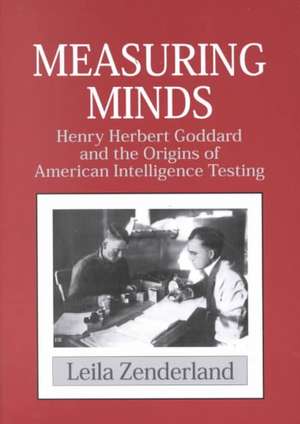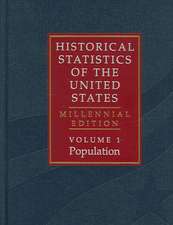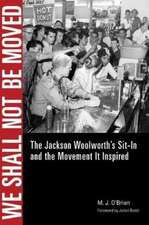Measuring Minds: Henry Herbert Goddard and the Origins of American Intelligence Testing: Cambridge Studies in the History of Psychology
Autor Leila Zenderlanden Limba Engleză Paperback – 22 apr 2001
| Toate formatele și edițiile | Preț | Express |
|---|---|---|
| Paperback (1) | 361.00 lei 6-8 săpt. | |
| Cambridge University Press – 22 apr 2001 | 361.00 lei 6-8 săpt. | |
| Hardback (1) | 567.80 lei 6-8 săpt. | |
| Cambridge University Press – 12 mar 1998 | 567.80 lei 6-8 săpt. |
Din seria Cambridge Studies in the History of Psychology
-
 Preț: 331.05 lei
Preț: 331.05 lei -
 Preț: 317.11 lei
Preț: 317.11 lei -
 Preț: 282.48 lei
Preț: 282.48 lei -
 Preț: 290.06 lei
Preț: 290.06 lei -
 Preț: 429.80 lei
Preț: 429.80 lei -
 Preț: 334.82 lei
Preț: 334.82 lei -
 Preț: 204.48 lei
Preț: 204.48 lei -
 Preț: 440.57 lei
Preț: 440.57 lei -
 Preț: 323.95 lei
Preț: 323.95 lei -
 Preț: 201.76 lei
Preț: 201.76 lei - 14%
 Preț: 870.35 lei
Preț: 870.35 lei
Preț: 361.00 lei
Nou
Puncte Express: 542
Preț estimativ în valută:
69.10€ • 75.08$ • 58.08£
69.10€ • 75.08$ • 58.08£
Carte tipărită la comandă
Livrare economică 22 aprilie-06 mai
Preluare comenzi: 021 569.72.76
Specificații
ISBN-13: 9780521003636
ISBN-10: 0521003636
Pagini: 478
Dimensiuni: 153 x 228 x 30 mm
Greutate: 0.7 kg
Ediția:Pbk.
Editura: Cambridge University Press
Colecția Cambridge University Press
Seria Cambridge Studies in the History of Psychology
Locul publicării:New York, United States
ISBN-10: 0521003636
Pagini: 478
Dimensiuni: 153 x 228 x 30 mm
Greutate: 0.7 kg
Ediția:Pbk.
Editura: Cambridge University Press
Colecția Cambridge University Press
Seria Cambridge Studies in the History of Psychology
Locul publicării:New York, United States
Cuprins
Introduction: motives, meanings, and contexts; 1. Spirit and science: faith, healing, and mission; 2. 'A little child shall lead them': educational evangelism and child study; 3. 'Psychological work among the feeble-minded': the medical meaning of 'mental deficiency'; 4. Psychological work in the schools: the statistical meaning of 'subnormality'; 5. Causes and consequences: the Kallikak family as eugenic parable; 6. The biology and sociology of 'prevention': defectives, dependents, and delinquents; 7. Psychological work and the state: reformers, professionals, and the public; 8. Psychological work and the nation: the political meaning of intelligence; 9. Leaving Vineland: popularity, notoriety, and a place in history; Epilogue: psychological legacies, historical lessons, and luck.
Recenzii
' … excellent … should be read by anyone with serious scientific or political interests in intelligence and its measurement'. The Times Higher Education Supplement
'Beautifully written and always interesting. This is a sensible and charitable book. Most psychologists could learn a thing or two about it.' The Psychologist
'This book is a magnificent reconstruction of Goddard's life and work.' Ethnic and Racial Studies
'Measuring Minds works on multiple levels. Most importantly, it is enjoyable to read. It presents the gripping story of a man who built an enormously successful career and then found himself rather suddenly assigned the part of the incompetent scientist blinded by right-wing prejudice. Secondly, Measuring Minds informs the reader not only of the early American intelligence test movement but also of the history of child study and the history of eugenics.' British Journal of Psychology
'Beautifully written and always interesting. This is a sensible and charitable book. Most psychologists could learn a thing or two about it.' The Psychologist
'This book is a magnificent reconstruction of Goddard's life and work.' Ethnic and Racial Studies
'Measuring Minds works on multiple levels. Most importantly, it is enjoyable to read. It presents the gripping story of a man who built an enormously successful career and then found himself rather suddenly assigned the part of the incompetent scientist blinded by right-wing prejudice. Secondly, Measuring Minds informs the reader not only of the early American intelligence test movement but also of the history of child study and the history of eugenics.' British Journal of Psychology
Descriere
This book explores intelligence testing in the US through the career of Henry Herbert Goddard.














